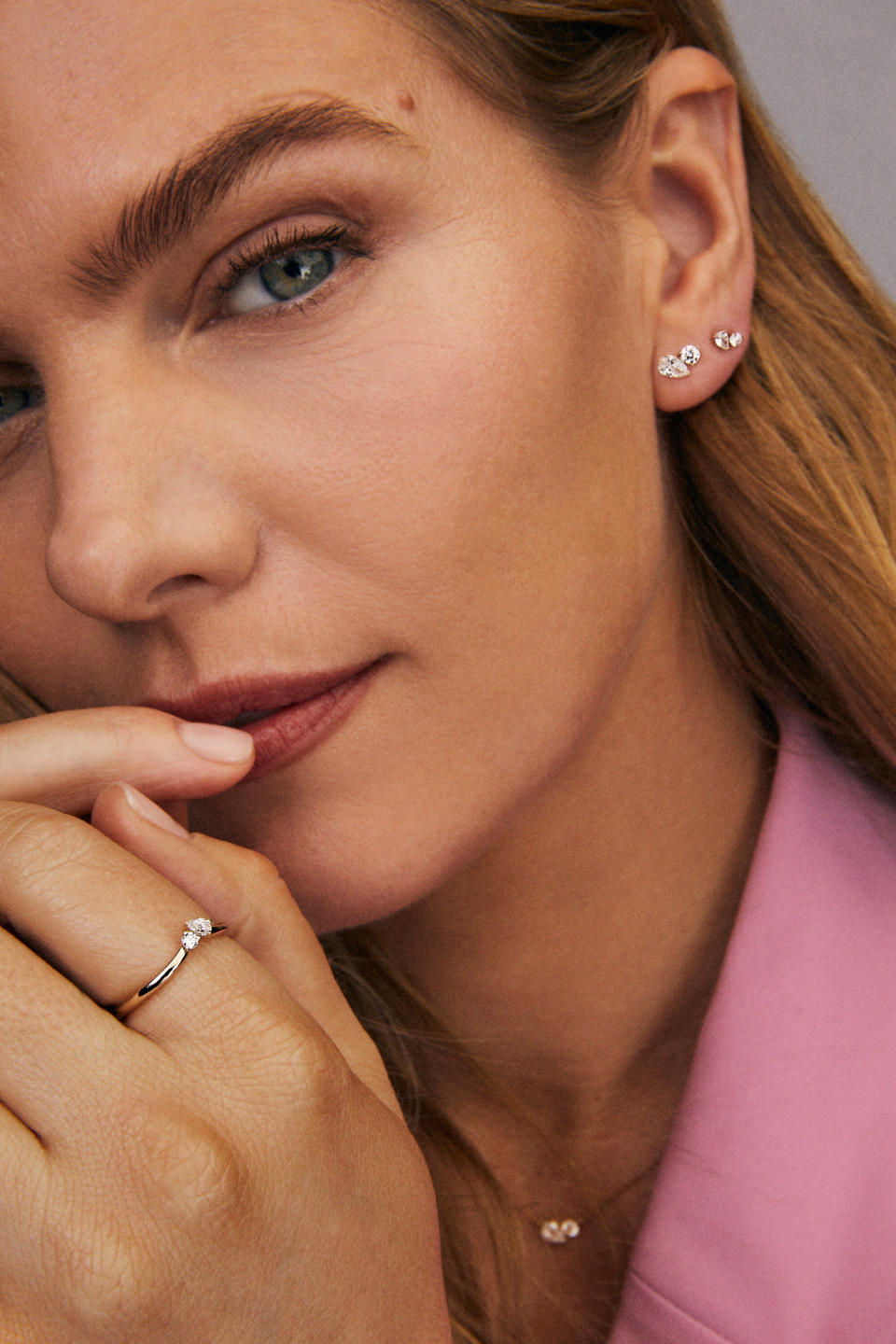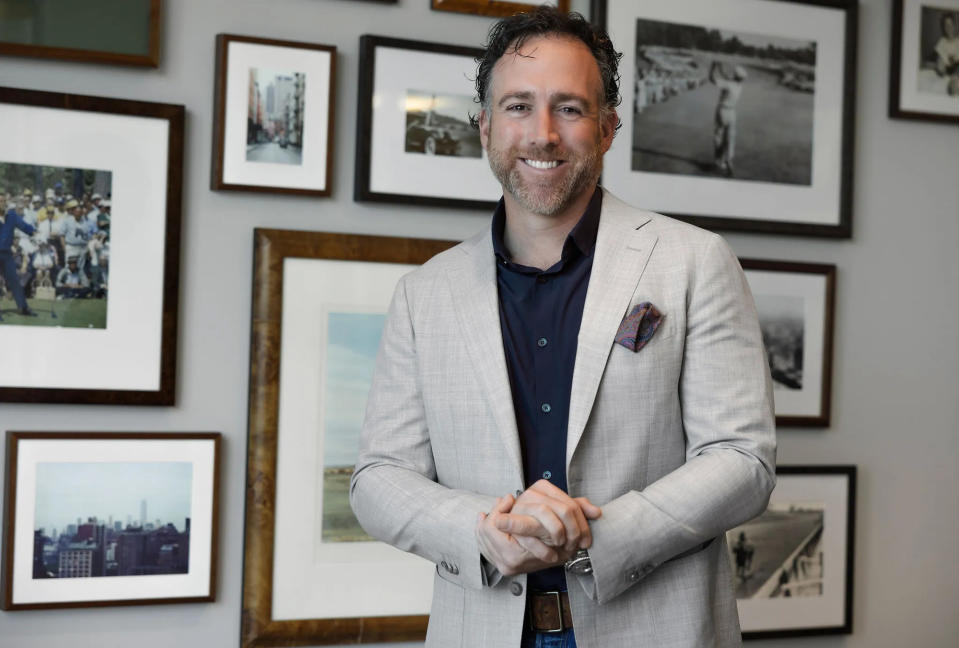How Kendra Scott Turned $500 in Seed Money to $500 Million in Sales

The U.S. fashion industry might be obsessed with New York and Los Angeles — but there’s plenty of style and business in between.
Witness Kendra Scott, the Lone Star star, who founded her jewelry brand with $500 in seed money in 2002 and built it into a big business with a middle-America approach to experience-based retail and a philanthropic bent.
More from WWD
Savannah Friedkin Aims to Bring Transparency to the Fine Jewelry Industry
Lo Bosworth on Building Love Wellness and the Education Gap in Women's Health
Sales last year totaled about $500 million and Monday, the brand is adding a little more sparkle with a lab-grown diamond collection.
Kendra Scott added diamond looks to its accessories offering a couple of years ago when its fine jewelry business launched. But this a concerted push specifically on lab-grown diamonds, which makes the pieces more affordable and side-steps the social concerns that can impact mined diamonds.
Tom Nolan, chief executive officer, said in an interview that the new line with lab-grown diamonds has 19 styles with prices that range from $500 to $3,000. Prices on engagement rings go higher.
To start, the new pieces will be in about 50 of the company’s stores and online. “We’ve had a lot of success in fine jewelry in general, so I’m anticipating this to be as successful,” Nolan said.

Count the lab-grown push as the latest new thing for Kendra Scott, which is also coming off a successful introduction at Target.
Christina Hennington, executive vice president and chief growth officer at Target, told analysts on a conference call this month: “Last year, we launched a new partnership with Kendra Scott, and our guests couldn’t get enough. These colorful jewelry and accessory pieces not only look good, but they do good too. With a shared vision for philanthropy, this collaboration shines bright on multiple levels. Expect plenty of new offerings in this partnership in 2024 and for years to come.”
Nolan said the move to Target was a big, carefully planned move that paid off.
“They’ve carried Disney product and Apple, brands we admired for years, but still it was a scary proposition,” he said. “We launched in a really targeted way with only 153 of their roughly 3,000 stores as really a beta test and wanted to make sure we had exclusive product at a sharp price point, really train their staff to make sure that it could be a similar customer experience, whether you were in Target or one of our retail stores.
“We spent a lot of time and attention to detail on the shop-in-shop,” he said. “And the read on the business side of things was crazy. It tripled what expectations were and we sold out of things almost immediately, which was great.”
The partnership proved to add to the brand overall.
Kendra Scott stores within five miles of a Target carrying the collection saw a 45 percent increase in sales three months after the launch, showing the relationship was not cannibalizing the business.
Nolan said the primary reason to launch with Target was to boost brand awareness for Kendra Scott, which still has national brand awareness below 10 percent.
The good news for Kendra Scott is that many of the people who don’t yet know the brand fall into its sweet spot.
“Eighty percent of the U.S. population makes less than $150,000 a year,” he said. “And I think everybody’s focused on this 20 percent over here. We’ve centered in that and are rooted in that [80 percent], and we stretch into people that are very affluent. We have plenty of customers like that. But also I think that the media has been spending a lot of time talking about luxury goods instead of forever sustainable brands like ours.”
In addition to targeting a large demographic, Kendra Scott has had philanthropy and experience built into its business model from the start.
It has donated more than $65 million to local, national and international causes and plans to stay at it with product collaborations, in-store events and foundation. The company hosted more than 21,000 events last year, further connecting it with the communities where it has stores.
“The world’s talking about how important experience is,” Nolan said. “We’ve been at the center of that for forever.”
The company has 138 stores now and plans to get to 200 in three years.
Scott remains the company’s largest shareholder and still serves as executive chairwoman and chief creative officer. But Nolan has been CEO since early 2021 and has been making headway.

“We’re coming off of just a banner year,” Nolan said. “We grew revenue by about 20 percent last year and [earnings before interest, taxes, depreciation and amortization] by north of 35 percent last year off a pretty big base.”
Berkshire Partners took a minority stake in a 2017 deal that set Kendra Scott’s valuation at about $1 billion. In July, WWD reported that Berkshire, in keeping with the usual private equity timetable for such investments, was ready to bow out and that the company was working with bankers to perhaps find a new partner.
Nolan said there were no updates on the process.
“Our philosophy is if you build it, they’ll come,” he said. “We just want to keep putting points on the board and doing things the right way in an authentic way. And I think when companies build themselves up to find a transaction or do a deal, they don’t build themselves up for sustainability. So we’re doing it the right way.
“We have had great institutional capital around this business since I’ve been on the board, which is almost 10 years now,” the CEO said. “And as we think about capital needs for the future, if we keep performing the way that we are, there’s going to be a lot of interesting opportunities out there. That’s kind of how we’re thinking about it.”
Nolan said the company has a “very low debt load” and “a lot of free cash flow.”
“We’re in a good place right now and as we want to step on that gas harder and we need access to different forms of capital, we’ll continue to reevaluate it,” he said.
Best of WWD


